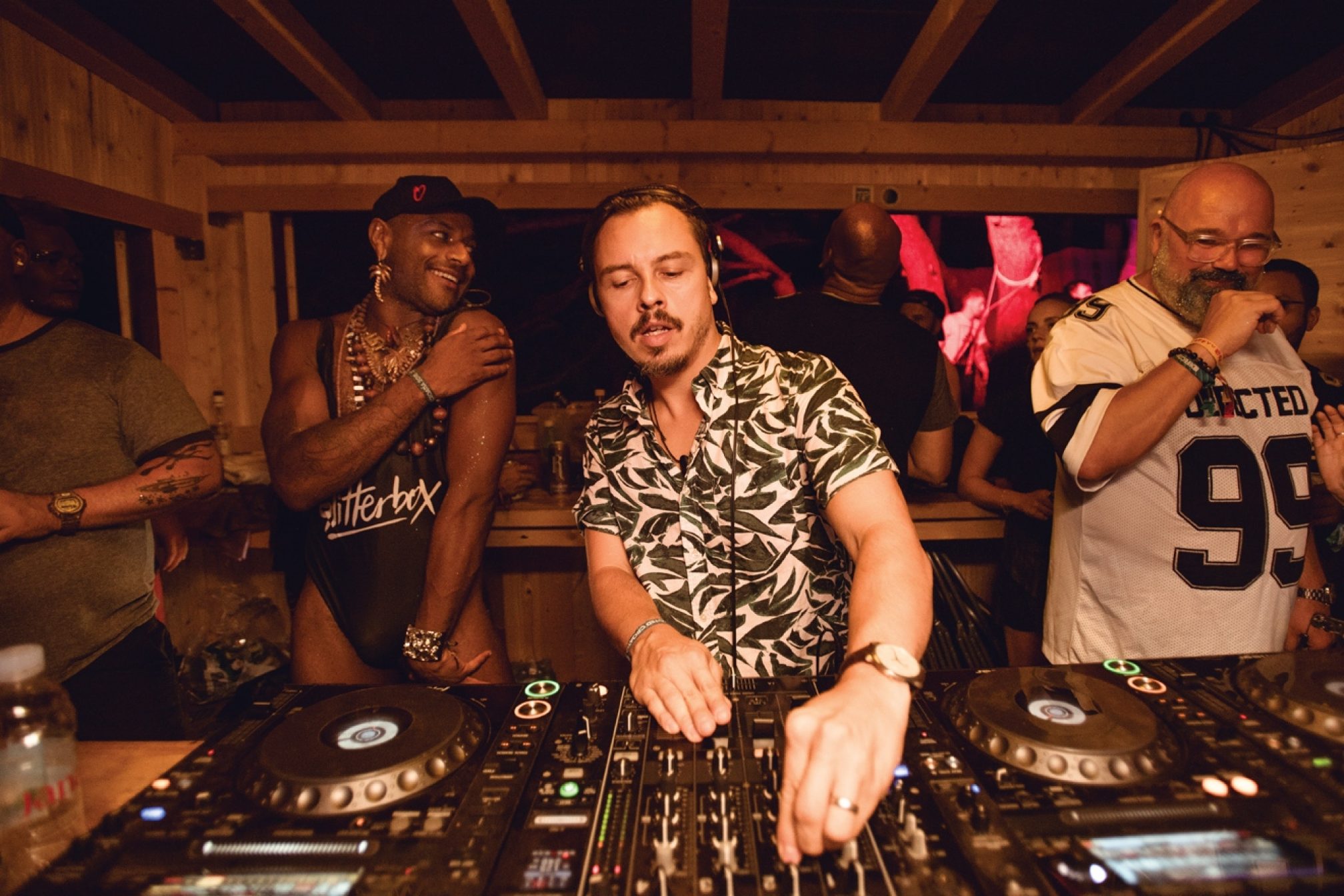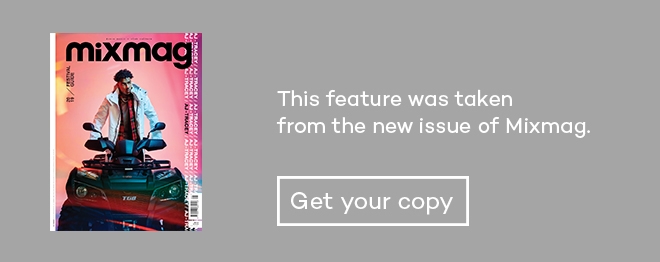 Artists
Artists
Purple Disco Machine is a hard-hitting one-man disco army
Dresden artist Purple Disco Machine is on a path to disco glory
In 1990. 10-year-old Tino Piontek and family went on an expedition to West Germany from their home in historic Dresden. A short while before, the Communist regime under which Piontek had grown up had begun to falter, eventually culminating in Germany’s reunification. It was the first time the pre-teen had entered a fully-stocked record shop, and boy did it make an impression.
“I saw walls of CDs, up to the roof,” says Piontek, who still lives in Dresden. “I looked at my mum, and she said I could buy one or two.”
And so began an obsession with music which, three decades on, and resulted in Tino becoming a disco house kingpin. As DJ and producer Purple Disco Machine, his music has an unfailing knack for finding that neurotransmitter in a clubber’s brain that causes them to raise their hands skywards and, in his words, “freak out”.
In the six years since breakthrough hit ‘My House’, his records and remixes have become staples of everyone from Calvin Harris to Jamie Jones to The Black Madonna. One track alone, 2017’s ‘Devil In Me’ – essentially ‘My House’ with a searing soul vocal – has notched up 29 million combined streams (although Piontek himself avoids quoting numbers).
‘Devil In Me’ is the epitome of the PDM aesthetic. Built around a sample from Judy Clay and William Bell’s 1960s r’n’b classic, ‘Private Number’, it has a bassline that clambers across it like a marauding commando and percussion that hits like heavy ordnance.
Purple Disco Machine’s records – like his remix of The Shapeshifter’s ‘Lola’s Theme’, which he recalls playing at the start of his career, or this year’s riotous Sylvester-sampling ‘Body Funk’ – are simplistic but far from formulaic. When deconstructed, the care and attention he puts into them reveals itself, especially their punchy drum programming and filtered basslines: elements that give his music energy and movement. These are records that grab your attention and don’t let go. Records with depth.
“Every song is different,” explains the smiling DJ from Saxony with facial hair like a French musketeer. “I don’t have a set format. Inspiration is everywhere. It could be from the radio, jamming, listening to drum loops, playing with synths. But I need one proper idea to start with or else I’m wasting my time.”
Sometimes they’re rattled off in one five-hour session, he says – as was the case with ‘My House’ – or much, much longer. ‘Dished’, for example, last year’s monumental reimagining of the 80s Hi-NRG classic ‘Male Stripper’ by Man 2 Man Meet Man Parrish, took two years, on and off, to finish.
Curiously, Piontek’s path to disco glory was in part aided by the East German Communist party’s pervasive influence on his early life: unlike many Western styles, most r’n’b and its derivatives, like disco, escaped censoring or bans.
“As disco lyrics were not that political they were allowed on the radio,” recalls Piontek. “My father was a music lover, but he couldn’t buy many songs he liked, so he travelled to Czechoslovakia or Hungary to get black market copies.”
It would be a love that Piontek would inherit – along with a passion and talent for football. When a knee injury at 15 curtailed his sporting endeavours Piontek bought some decks, a keyboard and a drum machine. While his mates were off playing snooker, Piontek was in his basement, honing his turntable technique, cribbing from the Love Parade DJ sets shown on German music TV station, VIVA. “Maybe to my friends I was a bit of a nerd,” he admits.
By the late 1990s, he’d fallen for French filter house and the new wave of German house music led by DJs like Mousse T and Boris Dlugosch. Yet it was a brief obsession with the techno emperor himself, Sven Väth, that really taught him about the shamanic power of great DJs. By 2004, playing under the name Stereofunk, Piontek fulfilled his ambition to play with his hero, but for the next half-decade or so, the path ahead had its bumps.
“I don’t have a special gift,” he says. “I just worked really hard. For a few years it was tough, without money. There were times when I couldn’t pay my rent but my mum and dad helped. I never gave up.”
By the turn of this decade, people were beginning to notice PDM.
“He was ubiquitous in our universe, so we couldn’t help notice him,” says Defected boss Simon Dunmore who signed Purple Disco Machine. Dunmore says Piontek’s secret is his work ethic. “His records do the talking for him,” he explains. “Plenty [of DJs] are great on social media, but he’s not that guy. Yet we need people who invest time in the studio and nourish dance-floors with great music. That’s why he’s grown.”
This August, Piontek’s off once again to Defected Croatia in Tisno, where he’ll share a bill with dancefloor luminaries like Derrick Carter and MAW. He describes Croatia as “like partying with thousands of your friends”, praising the festival’s ability to break down barriers between DJ and festivalgoer. “At normal festivals you have VIP and backstage areas. You don’t have the connection to fans like in Croatia,” he explains. His preference is for the sunset slot, starting out with original, smooth disco when the sun is going down, before playing it “a bit rougher”, he says. “With that reddish light, it’s the perfect atmosphere.”
However it transpires that Defected Croatia apart, Tino’s not really a festival guy. He has an aversion to rain-sodden tents – who doesn’t? – preferring hotel beds and showers to wellie boots, chemical loos and 72-hour insomnia.
“I tried it once but the tent next door had a private party with a massive soundsystem, all day,” he recalls with a shudder. “And it was shit music. I couldn’t sleep so I was so pissed off. Never again. I think I’m just too boring, too German, to freak out at festivals.” He’s happier back home in Dresden, with his young family, playing football every Monday night with people who have no idea what he does.
“It’s like I live two different lives. Even my neighbours don’t know what I do,” he concludes. “If this all comes off, great. If not, I always have my kids. I never feel pressure.”
And off Tino Piontek heads, back to his studio: the unassuming, driven, grown-up “nerd”. The Purple Disco Machine blowing up the world’s dancefloors with a high-stepping, groove-laden disco arsenal.
Stephen Worthy is a freelance writer, follow him on Twitter




